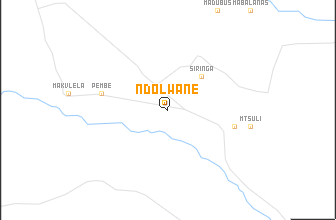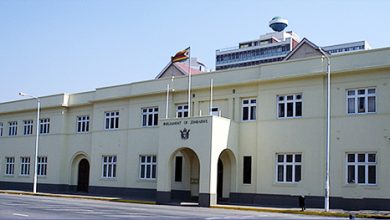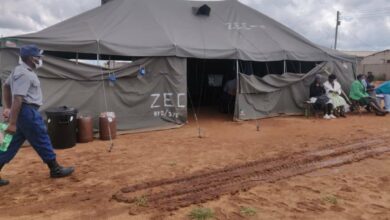The University of Zimbabwe’s First Pan-African History Conference

By Brooks Marmon
From 5 – 15 September 1960, an intimate, yet opulent (by academic standards) pan-African history conference convened in Salisbury, Southern Rhodesia (present-day Harare, Zimbabwe).
Funded by the London-based Leverhulme Trust, the conference aimed to provide a forum for members of history departments across ‘tropical Africa’ to confer. In addition to several Rhodesian-based delegates, historians resident in Sudan, Ethiopia, Uganda, Sierra Leone, Ghana, Nigeria, the UK, and South Africa attended.
Held in the latter half of 1960, the ‘Year of Africa’ when nearly 20 African countries became independent, the Leverhulme history conference convened when African historical scholarship was on the eve of significant growth. Despite the conference’s expansive African scope, in Salisbury, Southern Rhodesia, white rule remained firmly in place and this ‘pan-African’ conference was representative of the dominant role of whites in the making of contemporary African historical scholarship.
Sixty years later, a retrospective look at this conference offers a window on the environment in which academic scholarship on Africa developed while showcasing the retreat of Western scholars from African institutions.
The event, which could as easily been dubbed a retreat due to its length and generous touring agenda, was held at the newly established University College of Rhodesia and Nyasaland (now the University of Zimbabwe). Of approximately thirty-five delegates in attendance, three were black – Reverend Ndabaningi Sithole of Southern Rhodesia, Arthur Porter of Sierra Leone, and AB Aderibigbe of Nigeria. The remaining delegates were primarily white British men. A handful of these were based in the UK, such as Cambridge University’s Ronald Robinson, but most were lecturers in the history departments of universities in Africa.
In 1960, Britain retained control of most of its African territories. Even after independence, a number of these institutions maintained substantial links to UK institutions. In the 1970s and 80s however, colonial ties weakened and structural adjustment programmes mandated by international financial institutes slashed university budgets. The presence of the Western lecturer in the African university diminished considerably.
However, as Terence Ranger, an attendee who later became the leading historian of Zimbabwe wrote at the time, the British-funded conference “was necessary to help Africans newly conscious of the dignity of their past to achieve its accurate delineation.”
When the conference opened, Ranger had recently undergone a political transformation, joining the National Democratic Party of the anti-colonial nationalists. Jan Vansina, who attained renown for his oral history research, was disgusted by Rhodesian segregation and vowed not to return until it was over. Ndabaningi Sithole, who had just joined the NDP, was one of the few black speakers. Leonard Thompson of the University of Cape Town publicly outed two attendees he believed were informants for the Apartheid government.
While the Conference was literally held in colonised territory, the overwhelmingly white minds shaping historical study in Africa at the time were generally accepting (and supportive) of the ‘Wind of Change’ that most white Rhodesians rejected. The settler authorities had even previously discussed banning a book by George Shepperson, one of the attendees, on the 1915 Chilembwe uprising in Nyasaland.
Yet the historians were not perceived as a political threat. The conference kicked off with a formal dinner attended by luminaries like the Governor-General of the Federation of Rhodesia and Nyasaland and Godfrey Huggins, a former Prime Minister. One of the UK-based historians (Roland Oliver) declined a private request from Huggins to write his authorised biography. After four days of high-level networking and historical orations and pontifications, the academics needed to relax. A four-day tour spanned the Midlands and Manicaland, taking the leading historians on the continent to the ruins of Great Zimbabwe and the idyllic Nyanga highlands.
After visiting Great Zimbabwe, the historians retired to the Driefontein Catholic Mission where they consumed a prodigious amount of sacramental wine – the exceptionally boozy night was recalled by several attendees in their memoirs written decades later. At the Troutbeck Inn in Nyanga, the crapulent historians were the first group to integrate the hotel and breached strict instructions to avoid the establishment’s bar. The delegates returned to Salisbury for the final stretch of the conference and were then flown to Victoria Falls in a chartered airplane to conclude the programme.
Presumably this touring (and drinking) girded the historians for the significant amount of future research that needed to be done given the prevailing neglect of academic interest in Africa. As Ranger reminisced about his paper, it “la[id] out what needed to be done, rather than doing it.” The demographics of a pan-African history conference in Africa would be much different today. Sadly, it seems highly unlikely that such a conference would be so generously funded or attract the participation of political luminaries.
Brooks Marmon is completing a PhD at the University of Edinburgh and is an incoming post-doctoral fellow at the University of Pretoria. Follow him @AfricaInDC.






